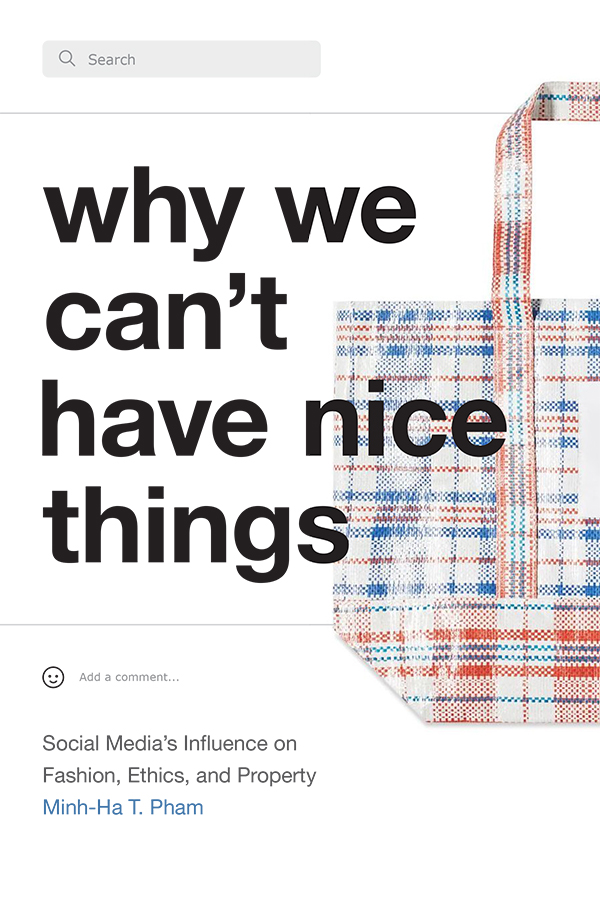In her second book, Why We Can’t Have Nice Things: Social Media’s Influence on Fashion, Ethics, and Property, Minh-ha T. Pham continues her examination of fashion’s digital labors, by analyzing what she terms crowdsourced intellectual property (IP) regulation. Pham argues that crowdsourced IP regulation follows a script that reaffirms the racial and class hierarchies that govern global fashion. A process that occurs across social media platforms, crowdsourced IP regulation does not actually adjudicate theft or ownership, but instead marks a site of struggle wherein the right to copy is publicly forged via commonsense, racialized ideas about who or what a “copycat” looks like. Pham explores this process through several case studies, as well as through the history of intellectual property within the fashion industry in the United States. Pham concludes her book with some reflections regarding the possibility of ethical fashion amidst a deeply unethical industry.
Keyword: intellectual property
Review of The Cultural Production of Intellectual Property Rights: Law, Labor, and the Persistence of Primitive Accumulation by Sean Johnson Andrews (Temple University Press)
Sean Johnson Andrews’ new book is a timely critique of Intellectual Property Rights (IPR) from a critical Marxist perspective. But the true goal of this work goes much deeper into tracing the history of the cultural foundations of the liberal state, private property laws, and labor relations, or what he calls the “reified culture of property.” Regarding the latter, Andrews argues that IPR are only the latest manifestation of this culture. It is an invention functioning like a bandage to hold together the privileged status and power of the capitalist property-owning elite, a power inevitably hemorrhaged by the twin processes of digitization and globalization. In fact, the very existence of IPR, he contends, exposes the fundamental flaws of neoliberal capitalism, presenting us with a unique opportunity. Starting with an examination of IPR, he works backwards to critically interrogate the ideology developed around problematic notions of value creation and the division of labor which both lie at the very heart of the culture of property.

